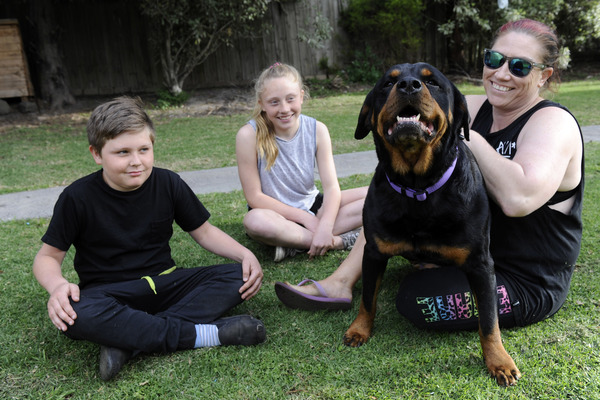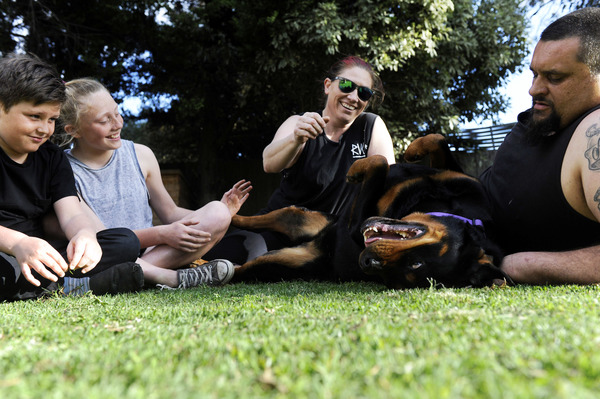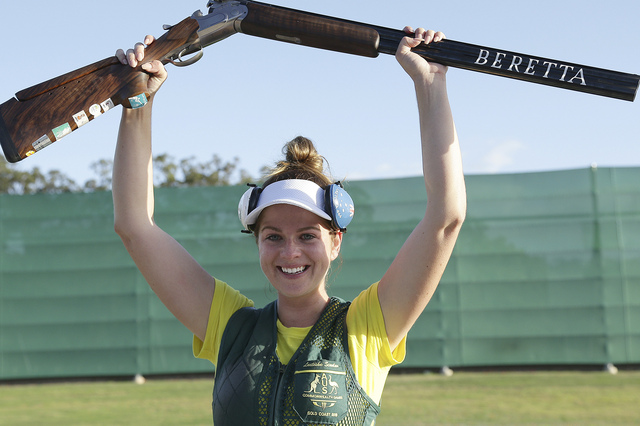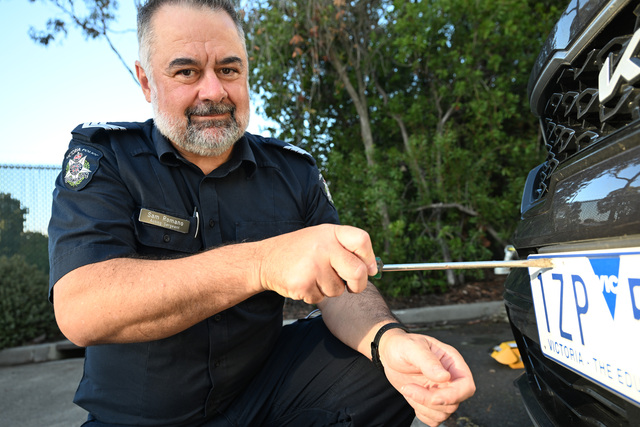By Cam Lucadou-Wells
A Cranbourne East family has won a two-month fight to free its impounded dog Sophie after Casey Council dramatically dropped allegations that the dog had killed neighbouring sheep.
The eight-year-old rottweiler, hobbled by a damaged hip, joyfully reunited with Allan and Angela Duffield and their six children after spending weeks on potential death row.
Casey Council had alleged that Sophie – along with another dog that has not been since caught – had fatally attacked two sheep and seriously injured others in a nearby paddock in Collison Road on 23 July.
After those charges were dropped, Mr Duffield was left to face minor charges of owning a dog at-large and registration offences.
The saga had dragged out despite the Duffields insisting on their dog’s innocence, defence lawyer Michael Faltermaier told Dandenong Magistrates’ Court on 28 September.
Sophie should have been released on the day and the Duffields served with a penalty notice, he said.
She wasn’t freed until 21 September after Mr Faltermaier had requested Casey to produce its evidence.
“There was no evidence that Sophie was involved in (the attacks) any way,” Mr Faltermaier said.
“The (pound) fees (of $2482.70) were then waived, but the dog was held for almost two months.”
It had caused great distress to Sophie and her family, who had been denied visitation rights during her “solitary confinement”, he said.
“We shouldn’t have been here today. It could have been covered with a penalty notice.”
Sophie had escaped not due to the family’s fault, but when a tree crashed onto the backyard’s fence during a storm the night on 22 July.
She was found on the neighbouring sheep property and impounded the next day.
Magistrate Barry Schultz said that he accepted the council had “acted as it did” due to the seriousness of the allegations.
The case had, however, caused distress to the family and “needless punitive isolation” for Sophie, Mr Schultz said.
He put Mr Duffield on a good behaviour bond including a $100 donation to Lort Smith Animal Hospital.
Casey safer communities manager Caroline Bell said the council had “no choice” but to withdraw the attack charges after a “key witness” failed to make a formal statement.
“In light of this, council has waived a portion of the pound fees.”
Ms Bell said the council and its Lost Dogs Home-run pound had a non-visitation policy for animals seized by Casey.
“This is due to a number of incidents of seized animals being forcefully removed by owners, putting pound staff and animal safety at risk.”
Outside the court, Mr Faltermaier – a self-described “dog lawyer” – says protracted cases such as Sophie’s were not the exception.
In some cases, dogs had been needlessly detained by councils for six months.
“The problem is either the staff that are making the decision to prosecute don’t have the ability to ascertain the question of whether there is evidence or not, or they make completely the wrong decision.
“It indicates that they should have a robust system where they make a very early, proper assessment of whether they have sufficient evidence to bring proceedings.
“It’s cruel, it’s unnecessary and with cases like this, it’s a great cost to the ratepayers.”









